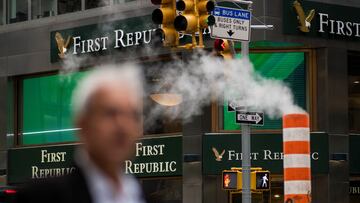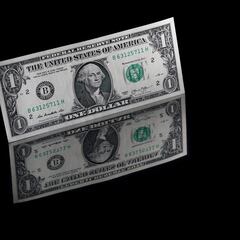How will the collapse of First Republic Bank affect my Social Security payments?
The FDIC managed to arrange an orderly resolution of First Republic Bank or taking it into receivership. What happens to Social Security payments?

Another US bank has collapsed, just a little over a month since two other large regional banks were taken over by the Federal Deposit Insurance Corporation (FDIC). JP Morgan and the FDIC announced on Monday morning that the New York bank would acquire the beleaguered San Francisco bank and assume its deposits in an orderly resolution. This avoided First Republic being put into receivership under the FDIC.
The latest troubled regional bank, that focuses on high-net-worth clients and their businesses, has been struggling for several weeks. Like other smaller banks, First Republic saw depositors withdraw vast sums of money from the institution as concerns grew over its financial stability. The scale of which was made known last Monday.
Customers had pulled out $100 billion over the first three months of the year, over half of the bank’s deposits. First Republic’s stock price had already plummeted after the collapse of Silicon Valley Bank and Signature Bank in mid-March, but this week saw its remaining share value nearly all but disappear.
So, what will happen to clients’ Social Security payments that are directly deposited into First Republic Bank now that it ceases to exist.
First Republic Bank's share price on 3/1 - $122.50
— Bloomberg (@business) April 28, 2023
First Republic Bank's share price on 4/28 - $1.80https://t.co/qJuLwT6h4v pic.twitter.com/tzshMt1aFc
How will the collapse of First Republic Bank affect my Social Security payments?
Fortunately for most clients of First Republic Bank, or any other bank that collapses, the process should be mostly painless. All direct deposits, including Social Security payments, if the bank is acquired by another financial institution, should land in a new account that will be created for you without any issues.
Similarly, if authorities had failed to work out an orderly resolution and took over the bank, put it into receivership, the US banking regulator “typically attempts to find a nearby bank to take over the direct deposit function temporarily, to make Social Security and other government annuity payments available to the customers,” according to the FDIC.
What will happen to deposits if First Republic collapses?
Should the process play out in the normal way without special measures being taken, as with Silicon Valley Bank and Signature Bank, the FDIC will cover insured deposits and try to make any possible amends for uninsured deposits.
If you have less than $250,000 in a federally-insured bank account, like the majority of Americans, your money should be safe. That is the limit that the FDIC covers per depositor, per ownership category, per FDIC bank.
Related stories
So, if you have accounts in more than one ownership category you may be eligible for more than the current minimum of $250,000 in protection at a single FDIC-insured bank. Should you have money at another FDIC-insured bank, you would also be eligible for the minimum coverage for that institution too, even if you already had to file a previous claim at a different failed bank.
The FDIC will give a failed bank’s customers that had more than the insured amount a Receiver’s Certificate as proof of claim for the amount of uninsured deposits. So say you have $260,000 deposited in an account, the FDIC will give you a claim certificate to the $10,000 that isn’t insured. As regulators liquidate the bank’s estate, holders of such certificates will receive payment toward their claim.


